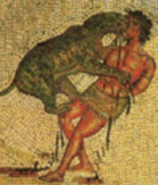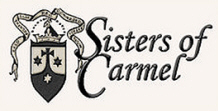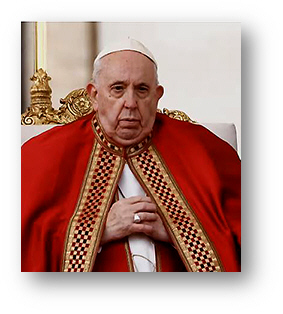|
Francis and the Heresy of Universal Salvationno One in Outer Darkness ... No Matter What Christ Taught!
First: Understanding the Hersey of IndifferentismIndifferentism is the heretical belief that there is no difference between any and all religions inasmuch as each suffices of itself as a means to redemption and beatitude. In other words, one religion is as correct and good as any other religion — however contradictory and antagonistic to every other religion. This is logically indefensible: it is a breach of the logical Law of Non-Contradiction: to wit: contradictory propositions cannot both be true in the same sense at the same time, e.g. the proposition that “the Holy Eucharist really is the Body, Blood, Soul, and Divinity of Jesus Christ” as Catholics maintain, and “the Holy Eucharist is not really the Body, Blood, Soul, and Divinity of Jesus Christ” as Protestants and Pagans maintain, is an incoherent proposition. Each proposition is categorically a denial and repudiation of the other. To hold that 1+1=2 and 1+1=5 simply because we wish it to be so, does not — and, of course, cannot — make it so. They are inherently contradictory statements. The condemnation of Indifferentism as a heresy is closely linked to the dogmatic definition that outside the Church there is no salvation.] Once we grasp what constitutes the heresy of Indifferentism, we are in a much better position to understand its influence on the “Ecumenical” program that Bergoglio indiscriminately promotes. Consider the following:
https://www.vatican.va/content/francesco/en/audiences/2022/documents/20220202-udienza-generale.html It is to be noted that
all these statements are categorical, that is to say, he
is stating that something is in fact the case; that apostates,
for example, are “saved sinners” and “cannot be
excluded from the Church.” This is not simply a strong statement,
it is a categorical statement; not simply a hypothetical
statement of the sort that something can be the case, or
even that it may be the case (“if ” they turn
from their sins “then”
they “can” be saved, or “may” be
saved) — no: Francis is making a much stronger statement
by not relying on any conditionals (“if”-“then”)
whatever. “All are saved.” Period. No matter what. Are we really prepared to speak of “St. Adolph Hitler?” “St. Josef Stalin?” “St. Judas Iscariot?” “St. Jeffrey Dahmer.” Is every child-molester and sadistic murderer, and every indescribable pervert now to be numbered in the Litany of Saints? If “we are all saved,”
... why not?
Francis's understanding of the Communion of Saints, however, is incorrect: according to Saint Robert Bellarmine, The Church (Ecclesia) “is a body of men united together by the profession of the same Christian Faith, and by participation in the same sacraments, under the governance of lawful pastors, more especially of the Roman Pontiff, the sole vicar of Christ on earth” (Coetus hominum ejusdem Christianæ fidei professione, et eorumdem sacramentorum communione colligatus, sub regimine legitimorum pastorum et præcipue unius Christi in Terris vicarii Romani Pontificis.” — Bellarmine, De Eccl., III, ii, 9);] — ed.]
St. Thomas (II-II:11:1) defines heresy as:
Canon Law:
Thus far we have argued merely from the canons of reason — that is to say, we have prescinded from the most Primary Sources that exceed the limitations of reason: to wit, the unimpeachable canon of Sacred Scripture itself.
The Heresy of Universal Salvation Summarized “Not every one that saith to me, Lord, Lord, shall enter into the kingdom of Heaven: but he that doth the will of my Father who is in Heaven, he shall enter into the kingdom of Heaven. Many will say to me in that day: Lord, Lord, have not we prophesied in thy name, and cast out devils in thy name, and done many miracles in thy name? And then will I profess unto them, I never knew you: depart from me, you that work iniquity.” Saint Matthew 25:31-46 (the Eschatological Discourse): “And when the Son of man shall come in his majesty, and all the angels with him, then shall He sit upon the seat of His majesty. And all nations shall be gathered together before Him, and He shall separate them one from another, as the shepherd separateth the sheep from the goats: And He shall set the sheep on his right hand, but the goats on his left. Then shall the King say to them that shall be on His right hand: Come, ye blessed of My Father, possess you the kingdom prepared for you from the foundation of the world. For I was hungry, and you gave Me to eat; I was thirsty, and you gave Me to drink; I was a stranger, and you took Me in: Naked, and you covered Me: sick, and you visited Me: I was in prison, and you came to Me. Then shall the just answer Him, saying: Lord, when did we see Thee hungry, and fed Thee; thirsty, and gave Thee drink? And when did we see Thee a stranger, and took Thee in? or naked, and covered Thee? Or when did we see Thee sick or in prison, and came to Thee? And the King answering, shall say to them: Amen I say to you, as long as you did it to one of these My least brethren, you did it to Me. Then He shall say to them also that shall be on His left hand: Depart from Me, you cursed, into everlasting fire which was prepared for the devil and his angels. For I was hungry, and you gave Me not to eat: I was thirsty, and you gave Me not to drink. I was a stranger, and you took Me not in: naked, and you covered Me not: sick and in prison, and you did not visit Me. Then they also shall answer Him, saying: Lord, when did we see Thee hungry, or thirsty, or a stranger, or naked, or sick, or in prison, and did not minister to Thee? Then He shall answer them, saying: Amen I say to you, as long as you did it not to one of these least, neither did you do it to Me. And these shall go into everlasting punishment: but the just, into life everlasting.” Saint John 13.26-27 “Jesus answered: He it is to whom I shall reach bread dipped. And when He had dipped the bread, he gave it to Judas Iscariot, the son of Simon. And after the morsel, Satan entered into him.” Saint Luke 12:5 “I will show you whom you shall fear: fear ye Him, who after He hath killed, hath power to cast into Hell. Yea, I say to you, fear Him.” Saint Luke 13:23-28 “And a certain man said to Him: Lord, are they few that are saved? But He said to them: Strive to enter by the narrow gate; for many, I say to you, shall seek to enter, and shall not be able. But when the master of the house shall be gone in, and shall shut the door, you shall begin to stand without, and knock at the door, saying: Lord, open to us. And He answering, shall say to you: I know you not, whence you are. Then you shall begin to say: We have eaten and drunk in Thy presence, and Thou hast taught in our streets. And He shall say to you: I know you not, whence you are: depart from He, all ye workers of iniquity. There shall be weeping and gnashing of teeth, when you shall see Abraham and Isaac and Jacob, and all the prophets, in the kingdom of God, and you yourselves thrust out...” Saint Mark 9:41-47 “And whosoever shall scandalize one of these little ones that believe in Me; it were better for him that a millstone were hanged around his neck, and he were cast into the sea. And if thy hand scandalize thee, cut it off: it is better for thee to enter into life, maimed, than having two hands to go into hell, into unquenchable fire: Where their worm dieth not, and the fire is not extinguished. And if thy foot scandalize thee, cut it off. It is better for thee to enter lame into life everlasting, than having two feet, to be cast into the hell of unquenchable fire: Where their worm dieth not, and the fire is not extinguished. And if thy eye scandalize thee, pluck it out. It is better for thee with one eye to enter into the kingdom of God, than having two eyes to be cast into the hell of fire: Where their worm dieth not, and the fire is not extinguished.” (Saint Paul) I Cor. 6:9-10 “Know you not that the unjust shall not possess the kingdom of God? Do not err: neither fornicators, nor idolaters, nor adulterers, nor the effeminate, nor liers with mankind, nor thieves, nor covetous, nor drunkards, nor railers, nor extortioners, shall possess the kingdom of God.” (Saint Paul) Galatians 5:19-21 “Now the works of the flesh are manifest, which are fornication, uncleanness, immodesty, luxury, idolatry, witchcrafts, enmities, contentions, emulations, wraths, quarrels, dissensions, sects, envies, murders, drunkenness, revellings, and such like. Of the which I foretell you, as I have foretold to you, that they who do such things shall not obtain the kingdom of God.” (Saint Paul) Ephesians 5:5 “For know you this and understand, that no fornicator, or unclean, or covetous person (which is a serving of idols), hath inheritance in the kingdom of Christ and of God.” (Saint Paul) Philippians 3:18-19 “For many walk, of whom I have told you often (and now tell you weeping), that they are enemies of the cross of Christ; whose end is destruction” 2 Saint Peter 2:4-10 “For if God spared not the angels that sinned, but delivered them, drawn down by infernal ropes to the lower hell, unto torments, to be reserved unto judgment: And spared not the original world, but preserved Noe, the eighth person, the preacher of justice, bringing in the flood upon the world of the ungodly. And reducing the cities of the Sodomites, and of the Gomorrhites, into ashes, condemned them to be overthrown, making them an example to those that should after act wickedly. And delivered just Lot, oppressed by the injustice and lewd conversation of the wicked. For in sight and hearing he was just: dwelling among them, who from day to day vexed the just soul with unjust works. The Lord knoweth how to deliver the godly from temptation, but to reserve the unjust unto the day of judgment to be tormented. And especially them who walk after the flesh in the lust of uncleanness, and despise government, audacious, self willed, they fear not to bring in sects, blaspheming.” Apocalypse 21:8 “But the fearful, and unbelieving, and the abominable, and murderers, and whoremongers, and sorcerers, and idolaters, and all liars, they shall have their portion in the pool burning with fire and brimstone, which is the second death.” Apocalypse 22:13-15 “I am Alpha and Omega, the First and the Last, the Beginning and the End. Blessed are they that wash their robes in the blood of the Lamb: that they may have a right to the tree of life, and may enter in by the gates into the city. Without [outside] are dogs, and sorcerers, and unchaste, and murderers, and servers of idols, and every one that loveth and maketh a lie.” The above citations from Holy Scripture are by no means exhaustive — nor are the arguments from discursive reason compendious. Each, however, suffices to demonstrate the rationally flawed, theologically inconsistent, and formally heretical propositions put forth by Francis (Bergoglio) in a failed attempt to bring the specious documents resulting from the calamitous convocation (Vatican II) to mature, albeit illogical, realization in the already condemned and heretical notion of “Ecumenism” first promoted by 1,213 Protestant theologians in the early 20th century at the Assembly Hall of the United Free Church of Scotland in Edinburgh in 1910 and condemned by Pope Pius XI in Mortalium Animos in 1928 (https://www.vatican.va/content/pius-xi/en/encyclicals/documents/hf_p-xi_enc_19280106_mortalium-animos.html) before it was rehabilitated by John XXIII and Paul VI 34 years later. “Ecumenism”,
together with the reciprocal notion of Universal Salvation,
was never
a Catholic doctrine, let alone a mandate
— until Vatican beginning 1962 and presently culminating
in the incoherent person of Jorge Bergoglio (Francis) — as its most
vigorous and vociferous proponent. (Deus, miserere nobis!) Editor
Comments? Write us:
editor@boston-catholic-journal.com * Every saint was once a sinner, but having become a saint was saved. This is very different from a sinner who obstinately remains a sinner. Ed 1
https://www.thecatholictelegraph.com/are-the-baltimore-catechism-and-catechism-of-the-catholic-church-the-same/15337
Also see: “The Devil’s
Redemption: A New History and Interpretation of Christian Universalism”
by scholar Michael McClymond
https://www.christianitytoday.com/ct/2019/march-web-only/michael-mcclymond-devils-redemption-universalism.html
(“The more robust arguments for universalism hold that God’s purposes
in creating the world will fail if even one intelligent creature should
finally be separated from God. This line of reasoning implies that not
only human sinners but also fallen angels [demons] will finally be saved.
The title of my book, The Devil’s Redemption, is an allusion
to that idea ... Universalism is theologically untrue and pastorally
unhelpful.”) Further Reading on the Papacy of Francis:
|























